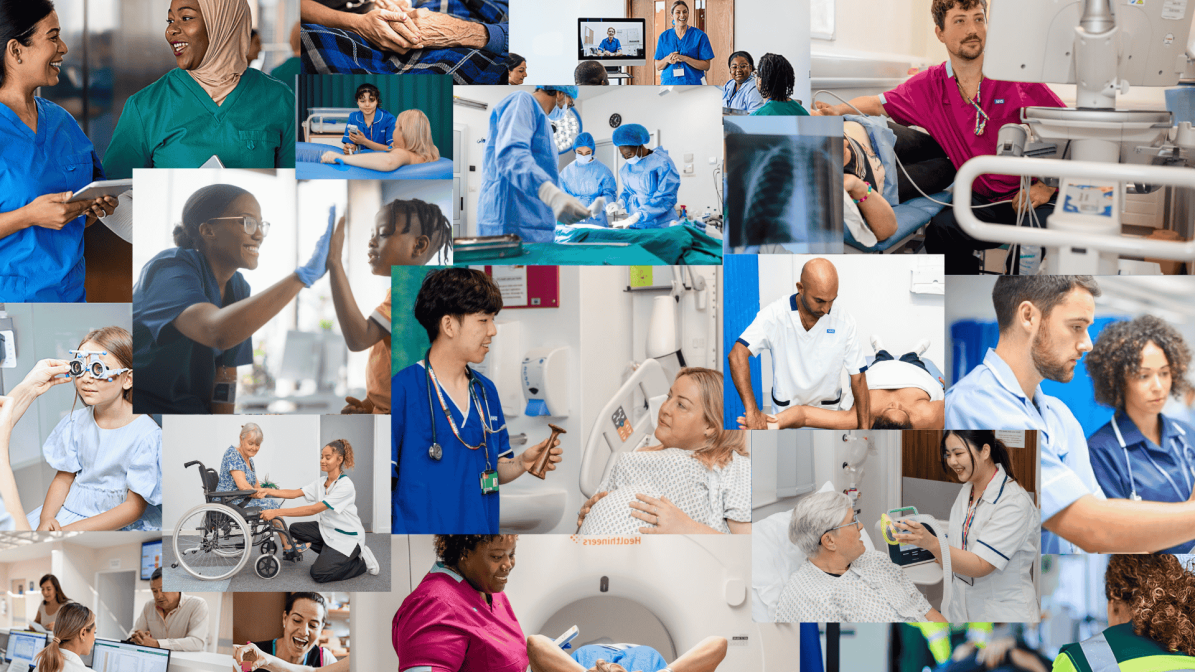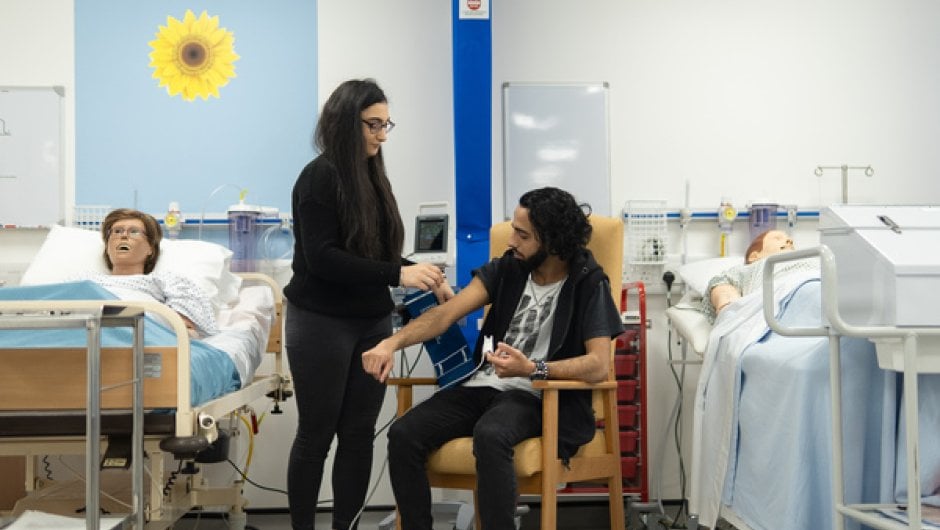The impact you could make
- Play a crucial role in alleviating suffering and restoring health in communities.
- Through research, have the potential to drive advancement in healthcare that can have a lasting impact on the field of medicine.
- Directly save lives through accurate diagnosis, effective treatment, and surgical interventions.
What you could study
- Anatomy
- Clinical testing
- Diagnosis
- Epidemiology
- Molecules to disease
- Body systems
- Human reproduction
- Biochemistry
- Patient communication

Discover careers in the NHS
The NHS offers a variety of careers in the medical sector. Discover different roles in the NHS and the different ways to get started on your future career.
Find out more
Chat to a current medicine student
Chat to a current medicine student using UniBuddy.
Some conversation starters for you:
- Ask which modules they really enjoyed.
- Find out how easy it was for them to make friends on their course.
- Do they have any tips on your personal statement?
- Did they do anything to prep for uni before they went?
- Are there books, podcasts or YouTube channels they would recommend?
Example module
Example assignment
Subjects it's useful to have studied first
Some medicine courses or apprenticeships will have requirements for previous qualifications in certain subjects. Entry requirements vary, so always check with the provider.
Biology
Chemistry
Hard skills you'll develop
- Ability to gather and interpret clinical data
- Technical competence in medical procedures
- Ability to critically evaluate medical literature
Soft skills you'll develop
- Adaptability and resilience
- Collaboration with interdisciplinary teams
- Empathy and compassion
Careers: Where it can take you
Find out more about your career prospects from studying medicine. The following information is based on a specialist medical practitioner role.
Available jobs
Average salary
Career options
Medical professions
Health, social and child care services

What is a… medical media producer?
Studying medicine isn’t just for aspiring doctors. You could put your medical expertise to creative use by becoming a Medical Media Producer. In this role, you blend your understanding of healthcare with media production skills, creating engaging and informative content. Whether developing educational videos, hosting health podcasts, or contributing to health documentaries, you're the bridge between medical expertise and public understanding, making complex health topics accessible to diverse audiences.
Find your ideal career
Take our careers quiz to find your ideal job matched to your personality type.Getting in: Entry requirements
Find out more about what you'll need to study medicine at university or as an apprenticeship.
Average requirements for undergraduate degrees
Entry requirements differ between university and course, but this should give you a guide to what is usually expected from medicine applicants.
A levels
Scottish Highers

Health and science apprenticeships
Check out our industry guide to help you decide if a health and science apprenticeship might be the right choice for you.Other subjects you may be interested in
Considering an apprenticeship?
Applying for an apprenticeship is just like applying for a normal job. Here’s what you need to know:
-
1
Deadline
Apprenticeships don't follow the same deadlines as applying to uni, the deadline is down to the employer. -
2
Where to apply
You apply directly through the employer.
-
3
No limits
You're not restricted to one apprenticeship application; you can do as many as you like. -
4
Apply to university and apprenticeships
There's nothing stopping you applying to university through UCAS, while also applying for apprenticeship vacancies. -
5
Find out more

Apprenticeship vacancies
Check out live apprenticeship vacancies in health and science.Explore further
Go deeper into topics around medicine with the following:
-
1
YouTube – Ninja Nerd
Follow this channel for interesting videos on some of the topics you might study in medicine. -
2
Podcast
Ever wondered what it’s like to be a medical student? The Sharp Scratch podcast gives a fascinating insight by talking to real students, junior doctors, and guest experts. -
3
Netflix series – The Surgeon’s Cut
This series showcases innovation and compassion in the medical sphere.
Application advice
Whether it's personal statement tips or what to write in a cover letter for an apprenticeship application, our application advice will help you get ahead in your medicine journey.Skills, experiences and interests to mention
- Have you ever thought about talking to your GP about their role?
- Maybe you’ve volunteered in a care home so you’ve seen first-hand the typical needs of residents.
- Talk about your academic achievements, particularly in the sciences.
- Demonstrate your problem-solving skills and critical thinking, whether that’s through a school project, extracurricular activity or a real-life experience.
- Do you have any personal reflections on a particular healthcare experience that influenced your decision to choose medicine?















